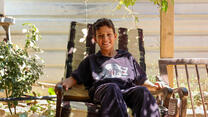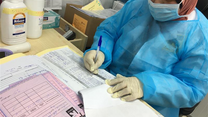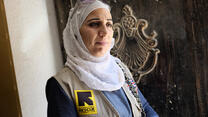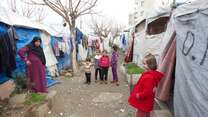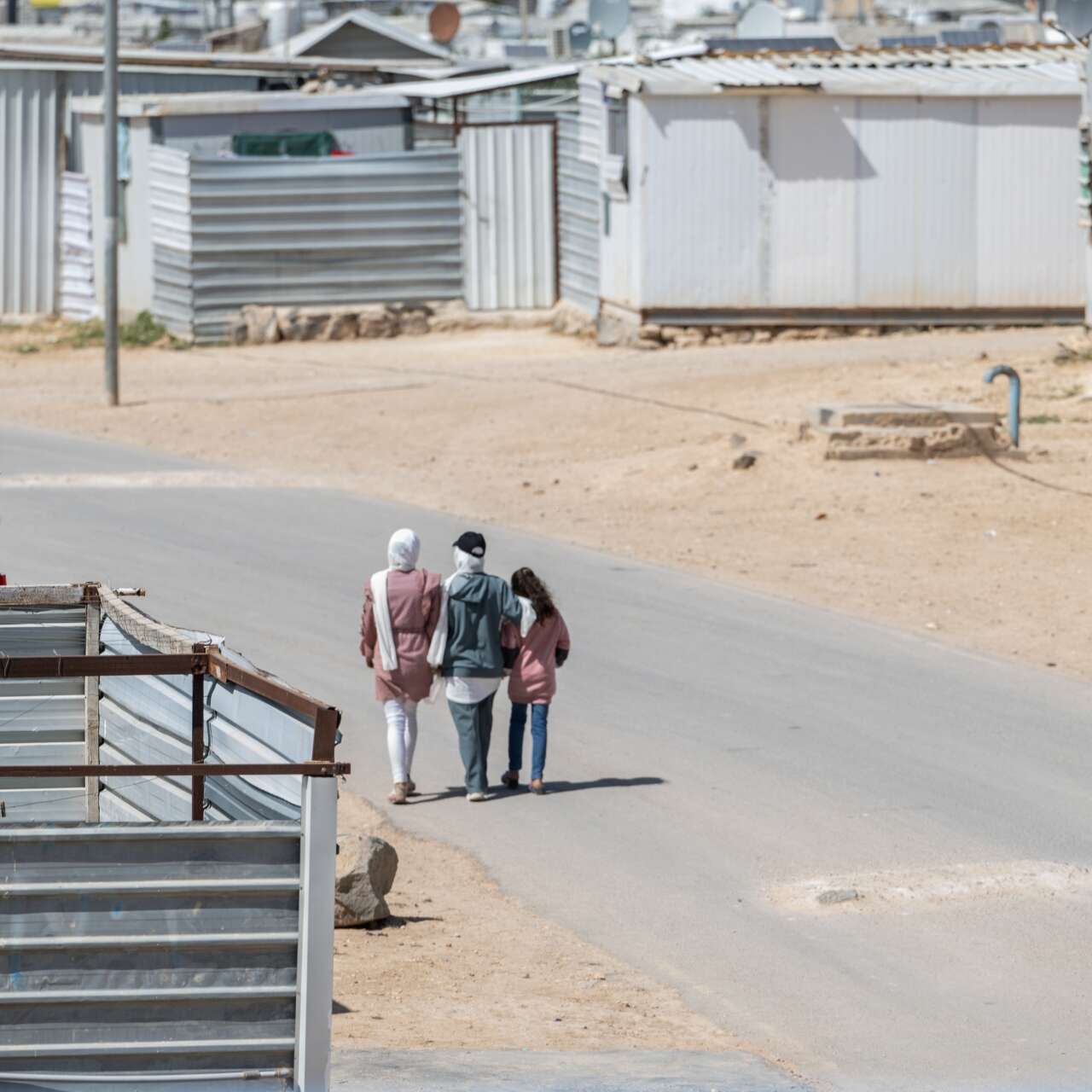
Jordan is home to the world's largest Syrian refugee camp. Established in 2012, Za’atari camp is home to 75,000 refugees who have fled Syria's 14 years of conflict. Life here is filled with uncertainty, but amidst the hardship, one woman stands out as a beacon of hope: Duha Ali.
A nurse and leader at the International Rescue Committee’s (IRC) comprehensive health clinic, Duha dedicates her life to providing essential medical care, ensuring refugee families receive the dignity and support they need to manage their health and rebuild their lives.
Below, Duha gives a first-hand account of her work.
Meet Duha: A day in the life of a frontline nurse
Before the sun rises, Duha is already on her way to the IRC clinic, driven by a single purpose: saving lives.
“I start my day at the clinic by diagnosing patients according to their health condition,” she explains. “Our clinic has a significant impact on the health of Syrian refugees because it offers comprehensive primary care that serves every family member.”
Duha’s role goes beyond routine nursing—she is a mentor and a source of inspiration for the refugee camp’s residents, showing them that a brighter future is possible.

Delivering life-saving care every day
At the heart of the IRC clinic’s operations is a holistic approach to healthcare. With a dedicated team of 36 professionals, Duha and her colleagues provide comprehensive health care—from managing chronic illnesses and treating infections to delivering preventive care like vaccinations and regular health awareness sessions.
“Throughout the day, we hold awareness sessions for patients, tailored to different groups on various topics,” says Duha. “Our clinic is of great importance due to the limited number of primary health care providers in the Za’atari Camp.”
On an average day, the clinic treats about 200 patients, ensuring they receive the care they need without having to leave the safety of the camp.

Refugees and health care staff share resilience
Life in Za’atari is not easy. Resources are scarce, and the pressure on the healthcare system is immense. Many refugees struggle not only with physical ailments but also with the psychological toll of displacement.
Abdel, a 65-year-old Syrian refugee, has lived in the camp since 2012. The tragic loss of his wife and the stress of displacement took a heavy toll on his health. “The psychological pressure was very intense, so I would come to them, and they would give me the appropriate treatment for my health.”
Like many in the camp, Abdel’s story underscores the critical need for accessible healthcare.
Duha acknowledges the difficulties her patients face: “One of the challenges faced by Syrian refugees in Za’atari Camp is the difficulty in accessing comprehensive primary healthcare, compounded by the increasing number of referrals outside the camp.”
By delivering consistent care on-site, the IRC clinic not only addresses immediate health issues but also reduces the strain on Jordan’s national healthcare system, providing a lifeline for those in desperate need.
Duha's hope for a better tomorrow
Despite the formidable challenges, Duha remains hopeful.
“Our clinic’s work gives refugees the chance to rebuild their lives, one patient at a time,” she says.
Her words are a testament to the power of quality health care in crisis zones—not just as an emergency response but as a catalyst for long-term recovery.

Expanding impact through partnership
In partnership with the Qatar Fund for Development (QFFD), the IRC launched an initiative to deliver primary health care services to more than 23,000 Syrian refugees in the Za’atari Camp. Through collaborations with Qatar Charity and the Qatar Red Crescent Society, the initiative has strengthened the camp’s health system and improved the efficiency of service delivery.
Duha’s work, bolstered by our partnership with QFFD, not only saves lives but also sets a powerful example of female leadership in humanitarian action.

